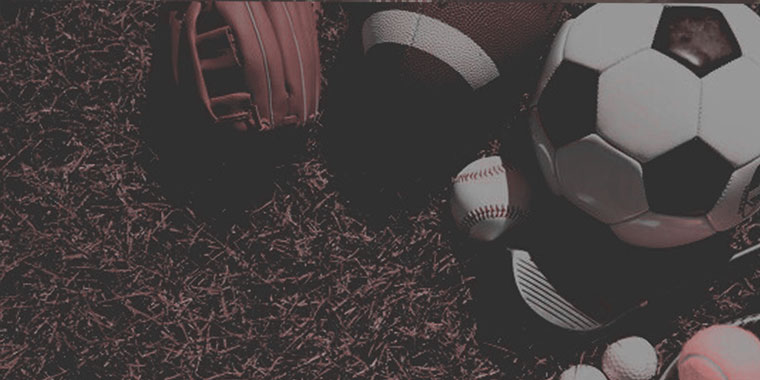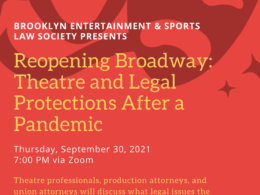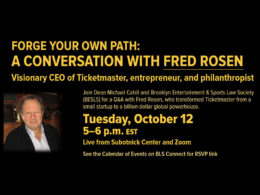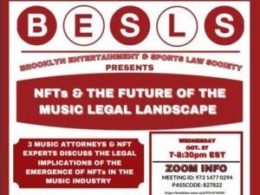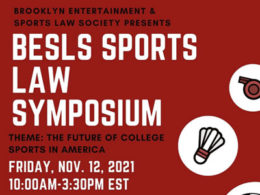On Friday, November 11th the Brooklyn Entertainment and Sports Law Society and the Intellectual Property Law Association hosted the second annual Brooklyn Law School Sports Law Symposium. The symposium theme was “Sports Intellectual Property in a Time of Disruption” and had many students, faculty, practitioners, family and friends in attendance. The event was a great success and BESLS and IPLA are already excited for next year!
The second panel of the day, “Athlete Publicity Rights: College & Beyond,” provided insightful discussion on prevalent topics in today’s sports law field. Dan Lust (Sports Law Attorney at Moritt Hock & Hamroff; Sports Law Professor at New York Law School; Podcast Host at Conduct Detrimental) moderated the panel and was joined by Arun “A.T.” Thottakara (NIL Legal Coordinator at Excel Sports Management), Medhi Ansari (Partner and Co-Head of the IP and Technology Group at Sullivan & Cromwell), and Robert Boland (Sports Law Professor at Seton Hall Law; Former Athletics Integrity Officer at Penn State University).
The panel began with a discussion on college athlete NIL (Name, Image, Likeness), and the lack of consistency in state laws, compliance, and governance. While the panelists all agreed that college athletes have, and likely should have had for a long time, a right to exploit opportunities arising out of their NIL, the state-by-state framework and inconsistent enforcement and rules lead to challenging legal issues. Given that the NCAA has ultimate control over college athlete eligibility, schools, conferences, and states have a duty to ensure that their student-athletes are complying with NCAA rules. However, as the panelists discussed, this duty may be overlooked. Overall, the career risks associated with athlete eligibility would be benefitted by a uniform, federal framework and investment into compliance measures.
Dan then went on to ask the panelists about their opinions on the various forms of NIL opportunities that college athletes are being granted. Specifically, the panelists discussed the issues and benefits arising out of the NIL collectives being formed by alumni and boosters. Although the collectives provide a great source of funds and opportunity for college athletes to benefit from, there are issues such as fair market value for services, pay-for-play, combatting bad actors, and policing the work of collectives. Since the schools have no control over the collectives and the NCAA has been stripped of much of its enforcement power in recent court rulings, duty to abide by NIL rules likely falls on the collective itself. However, with boosters seeking to recruit top athletes to their school and athletes hoping for a pay-day, these motives likely lead to harmful effects on competitive balance, fairness, and the future of amateur sports.
The panel concluded with a discussion on the future of athlete publicity rights in college sports: how to police collectives, what a uniform federal law should look like, will the NCAA’s governance structure survive this NIL revolution? Overall, there are a lot of questions and a lack of concrete answers, which is why AT highlighted the need for new attorneys in the field. The panelists agreed that since these issues are so new, nobody is really an expert in the field. The future experts and leaders will be us students!
BESLS, IPLA, and everyone in attendance would like to thank the panelists and moderator for an insightful conversation on the evolving world of athlete publicity rights.
Written by: Daniel Erber
Daniel is a 2023 J.D. Candidate at Brooklyn Law School
